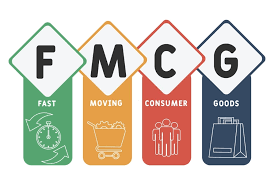Nigeria’s Fast-Moving Consumer Goods (FMCG) sector is navigating a complex landscape marked by both immense potential and significant challenges. The country’s burgeoning population, projected to exceed 200 million by 2025, represents a vast and growing consumer base, creating substantial opportunities for FMCG companies. However, this potential is tempered by a volatile economic environment characterized by high inflation, currency depreciation, and policy inconsistencies. These factors have led to reduced consumer spending, increased operational costs, and even the exit of some multinational companies. Consequently, FMCG leaders are being urged to adapt swiftly to evolving consumer preferences and prioritize innovation to maintain competitiveness in this dynamic market.
The prevailing economic pressures are reshaping consumer behavior and brand loyalty. Consumers are increasingly price-sensitive, actively seeking value-driven options, and readily switching brands in pursuit of the best deals. This shift is particularly evident among middle-aged, higher-income earners who, despite their relatively stable financial standing, demonstrate a growing inclination towards budget-conscious purchasing decisions. As a result, FMCG brands are advised to leverage data-driven insights, omnichannel strategies, and direct-to-consumer approaches to build trust and retain customer loyalty in this evolving market. Understanding the nuances of consumer behavior and adapting marketing strategies to resonate with these changing priorities are becoming critical for survival.
Evolving consumer preferences are adding another layer of complexity to the FMCG sector. Beyond price sensitivity, consumers are increasingly prioritizing health-conscious choices, premium quality products, and sustainable practices. This trend underscores the need for FMCG companies to diversify their product offerings and cater to this growing demand for healthier, higher-quality, and environmentally responsible products. Brands must innovate to align with these evolving preferences, focusing on product development, packaging, and marketing strategies that resonate with health-conscious, environmentally aware, and quality-seeking consumers. This also necessitates strategic partnerships and collaborations to optimize supply chains and ensure the efficient delivery of these specialized products.
Experts at the 6th Industry Summit, themed “Understanding Changing Consumer Preferences in Troubled FMCG Space,” emphasized the need for agility, innovation, and a deep understanding of the consumer landscape. The summit highlighted the importance of leveraging technology, such as AI-driven insights and digital platforms, to understand consumer behavior, personalize marketing campaigns, and optimize operations. The rise of e-commerce and digital payments further necessitates the adoption of omnichannel strategies that seamlessly integrate online and offline channels to enhance customer experience and accessibility. Building strong brand narratives that resonate with consumers emotionally is also crucial, especially in a price-sensitive market. Crafting compelling narratives that connect with consumers’ values and aspirations can build brand loyalty and drive purchasing decisions beyond mere price considerations.
Beyond technological advancements and data-driven strategies, experts also stressed the importance of unique brand positioning and impactful storytelling. In a competitive market, creating a distinct brand identity and communicating a compelling brand story are essential for attracting and retaining consumers. This requires a deep understanding of the target audience, their needs, and their motivations. Delivering standout experiences, particularly in the premium segment, necessitates a focus on quality, innovation, and personalized service. Building strong emotional connections with consumers through authentic and relatable brand narratives can further strengthen brand loyalty and drive sales.
The Nigerian FMCG sector is undoubtedly facing a period of significant transformation. While the challenges are undeniable, the opportunities for growth remain substantial. By embracing innovation, prioritizing consumer-centric strategies, and adapting to the changing market dynamics, FMCG companies can not only weather the current economic storm but also thrive in the long term. This requires a commitment to continuous learning, agile decision-making, and a deep understanding of the evolving needs and preferences of the Nigerian consumer. The success of FMCG businesses will depend on their ability to adapt, innovate, and connect with consumers on a deeper level, delivering value, quality, and experiences that resonate in this ever-changing market.














